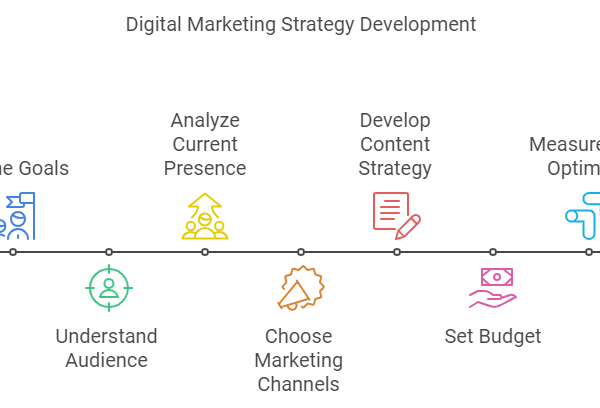
In today’s digital age, learning has transformed beyond the traditional classroom setting, and one of the most innovative tools driving this change is educational games. These games combine entertainment with learning objectives, creating an engaging experience that enhances knowledge retention and fosters creativity. As a result, both educators and learners are increasingly turning to games for learning to make education more interactive, fun, and effective.
In this guest post, we’ll explore the benefits of games for learning online course, the growing trend of online courses that incorporate game-based learning, and how this approach is shaping the future of education.
What Are Games for Learning?
Games for learning, also known as educational or serious games, are designed to teach specific skills or knowledge through interactive play. Unlike purely recreational games, educational games are created with learning outcomes in mind, providing opportunities for players to explore concepts, solve problems, and develop critical thinking in a simulated environment. These games span various subjects, including mathematics, science, history, and even soft skills like communication and teamwork.
Game-based learning can take many forms, from simple puzzles and quizzes to more complex simulations and role-playing games. The primary goal is to create a balance between fun and education, where learners are motivated to engage with the content because it is presented in a compelling and immersive way.
The Benefits of Games for Learning
- Increased Engagement
One of the most significant advantages of using games for learning is the high level of engagement they foster. Games captivate students’ attention by incorporating elements like rewards, challenges, and competition. This engagement can be particularly beneficial for students who might struggle to stay focused in traditional learning environments. When students are actively involved in their learning process, they are more likely to retain information and apply it in real-world scenarios.
- Enhanced Motivation
Games for learning provide instant feedback and a sense of accomplishment, which motivates learners to continue progressing. Whether through levels, badges, or scores, these game mechanics encourage players to keep trying, even if they make mistakes. This kind of intrinsic motivation promotes a growth mindset, where learners view challenges as opportunities to improve rather than as obstacles.
- Improved Problem-Solving Skills
Many educational games require players to solve problems, strategize, and think critically to succeed. These Games for Learning often present learners with complex scenarios that need to be analyzed and resolved using various approaches. By engaging in this type of thinking, learners develop stronger problem-solving and decision-making skills, which are valuable not only in the classroom but also in everyday life.
- Collaboration and Social Learning
Multiplayer or team-based games foster collaboration and social learning by encouraging students to work together to achieve common goals. These games promote communication, teamwork, and leadership skills as learners interact with each other to solve challenges or complete missions. This social aspect of game-based learning helps learners develop interpersonal skills, which are increasingly important in today’s collaborative work environments.
- Adaptability for Different Learning Styles
One of the strengths of game-based learning is its adaptability to different learning styles. Visual, auditory, and kinesthetic learners can all benefit from educational games, as these platforms often include a variety of elements like visuals, sound, and physical interaction (in the case of VR or motion-based games). Games also allow for personalized learning experiences, where students can progress at their own pace and revisit concepts as needed.
Online Courses Incorporating Games for Learning
As technology becomes more integral to education, many online courses are incorporating game-based learning elements to enhance their effectiveness. Platforms offering educational games, simulations, and interactive quizzes are emerging as powerful tools for learners of all ages.
Here are some examples of how online courses are utilizing games for learning:
- Interactive Simulations
Online courses in subjects like science, engineering, and business often use simulations to replicate real-world scenarios. For instance, students can manage a virtual company, perform experiments in a digital lab, or design products in a simulated environment. These games allow learners to apply theoretical knowledge in a practical context, helping them gain a deeper understanding of the material.
- Gamified Learning Platforms
Many online education platforms are adopting gamification techniques to keep learners engaged. These platforms may use points, leaderboards, and badges to reward students for completing tasks or mastering skills. Coursera, Khan Academy, and Duolingo are examples of platforms that incorporate game elements to motivate learners and track progress.
- Serious Games for Skill Development
Some online courses, especially in fields like healthcare, finance, and law, use serious games to teach essential skills. For instance, medical students can participate in virtual surgeries, while law students can engage in mock trials. These serious games provide hands-on experience in a controlled, risk-free environment, allowing learners to practice and refine their skills before entering their respective fields.
- Puzzle and Problem-Solving Games
Courses that focus on critical thinking, logic, and problem-solving often use puzzle-based games to challenge learners. These games encourage students to think outside the box and find creative solutions to complex problems. They are particularly effective in subjects like mathematics, coding, and physics, where logic and reasoning are essential.
The Future of Game-Based Learning
The future of education is undoubtedly intertwined with technology, and game-based learning is at the forefront of this transformation. As virtual reality (VR), augmented reality (AR), and artificial intelligence (AI) continue to evolve, the potential for more immersive and personalized learning experiences will expand.
Games for learning are also likely to become more prevalent in formal education settings, from primary schools to universities. As educators and institutions recognize the value of game-based learning in improving engagement, motivation, and knowledge retention, we can expect to see more curricula incorporating these innovative tools.
Conclusion
Games for learning are revolutionizing education by providing a dynamic, interactive, and enjoyable way to acquire knowledge and skills. Whether through online courses, interactive simulations, or puzzle-solving games, learners of all ages are benefiting from this innovative approach. As game-based learning continues to grow, it promises to create more engaging, effective, and personalized educational experiences, empowering learners to succeed in an increasingly complex world.











